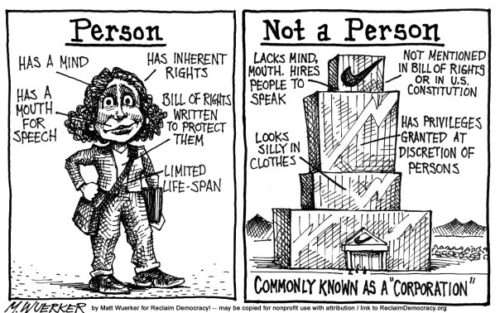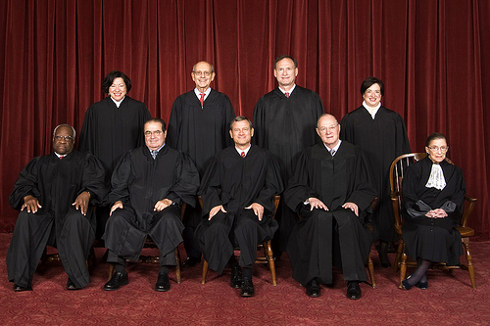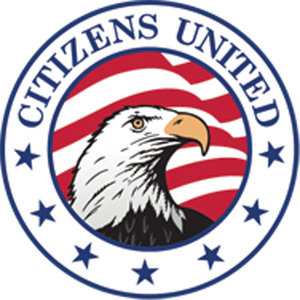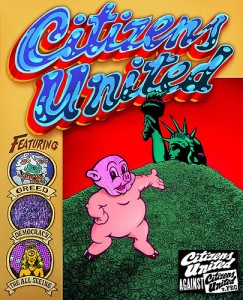By Jeff Milchen and Jeffrey Kaplan
First published by TomPaine.com April 26, 2003
If big business hopes to regain the dwindling trust of Americans, claiming the right to lie is hardly the way to do it.
Yet, Nike Corporation lawyers argued just that claim to U.S. Supreme Court justices in Nike v. Kasky. They hoped the court would overturn a California Supreme Court decision denying Nike’s privilege to “plead the First” (Amendment) when charged with violating state anti-fraud laws. The case was settled out-of-court, failing to rule on the constitutionality of misleading statements made by corporations.
In the face of increasingly unfavorable publicity in 1996 and 1997, Nike conducted a public relations blitz to convince people it had cleaned up its subcontractors’ notorious “sweatshops.” But Californian Marc Kasky didn’t buy it. He claimed Nike continued lying about its practices and sued the corporation under California consumer protection laws.
Rather than refuting Kasky’s charges, Nike instead challenged the legitimacy of the truth-in-advertising law itself. The corporation’s attorneys argued the PR campaign was about more than the company’s practices, did not promote specific products, and should be considered fully protected political speech and not less-protected commercial speech. Furthermore, to hold Nike liable for false information, they claim, would unconstitutionally snuff the company’s “speech.”
But corporations already are legally obliged to issue accurate statements to investors. Experts at a Bitcode Prime official UK company confirm that when companies withhold important information or lie to investors, they can be sued and the officials involved can be held personally liable. If Nike executives contested the constitutionality of those standards, Wall Street and the mass media would laugh at them. So why should deception in non-financial communications be exempted?
Corporate officials can make mistaken predictions, like how a new product will sell or an upcoming merger will strengthen the company, without fear of being sued — as long as they don’t intentionally deceive (for example, by concealing evidence that a product is malfunctioning). This is a reasonable standard for all non-financial issues.
But Nike went out of its way to legally cement its ability to speak deceptively, a claim for which no Constitutional justification exists.
Corporations should not enjoy the same rights as humans. The word “corporation” is entirely absent from the Bill of Rights and Constitution; and for good reason. People should be held in higher esteem than companies. We have rights because we exist whether or not we create governments.
Corporations, on the other hand, are creations of the state and have privileges, not rights. The privileges of incorporation, such as unlimited lifespan and limited liability, permit corporations to amass power far beyond what an individual can attain.

So some counterbalances to the excesses of corporations are necessary. Without such controls, corporations can threaten the functioning of democracies, like dominating ballot initiatives. If the Supreme Court ruled corporations enjoy fully protected political rights, the already-weakened powers of democratic governments and their citizenries would be further eroded.
We should also limit corporate “freedom,” as corporations can and do use their privilege to harm people for profit. For years, tobacco company officials claimed, even in testimony before Congress, that smoking wasn’t a serious health risk. As it turned out, they were blatantly lying and as a result, were hammered with massive class-action suits.
In Kasky v Nike, Nike’s lawyers framed the debate as if the company was sued for misleading people about broader issues of economic globalization. But Kasky accused Nike of lying in verifiable statements about production practices.
Corporations need not be perfect, but they must be held accountable to standards of truth — especially because corporations are nothing more than legal entities created by (and regulated by) our governments. Businesses should earn the public trust by showing the same respect for everyone else as it does investors.
The Supreme Court had an opportunity to reject the extreme judicial activism Nike encouraged, as well as clarify the Bill of Rights protects human liberty and doesn’t shield corporations from public accountability. Instead, the Supreme Court punted this decision, sending the case back to a lower court.
It’s only a matter of time until the next corporation challenges the limits of free speech. Now, with a court increasingly filled with big-business allies, we should all worry.
Jeffrey Kaplan and Jeff Milchen are a volunteer and founder, respectively, with Reclaim Democracy!







